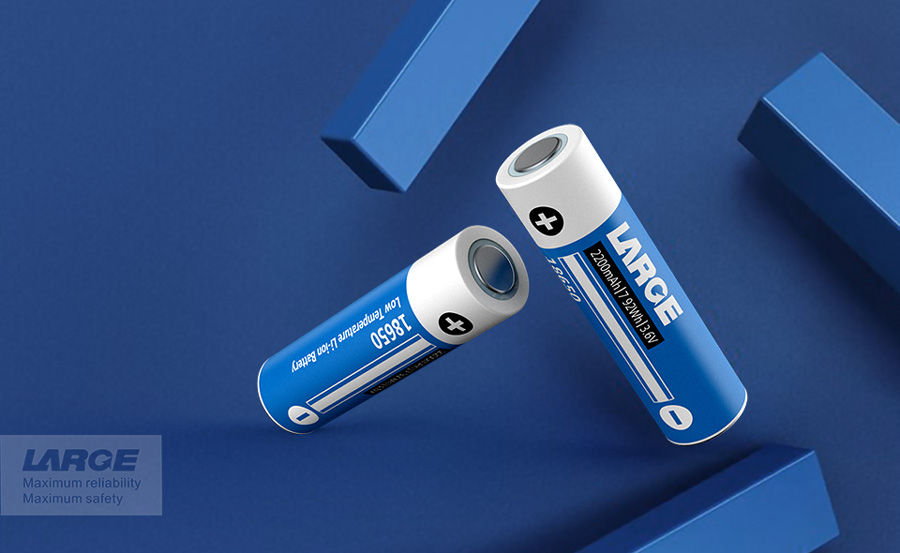What Is Difference Between Alkaline And Lithium Batteries
Dec 06, 2019 Pageview:1693
Batteries are an important element of illuminated disposable medical devices, and the battery type that you use in homes or at work places are also very important. It can mean the difference between being able to perform a successful smooth procedure and one involving unforeseen delays related to lighting problems. Furthermore, there is the post-battery use and disposal issue, which also brings environmental issues to be addressed.
The two most common types of batteries are used as personal power sources are alkaline and lithium batteries. Both have different chemical compositions and voltage ranges; as lithium batteries cross into the AA and AAA market once dominated by alkaline batteries, these differences become more significant.
Two types of batteries
Of the types of batteries most widely used in the world of batteries, alkaline and lithium are the two leading styles. Every come with significant advantages and functionality that should be taken into account.
Let's look at the two types of batteries and look at their characteristics:
Alkaline batteries
It is stated that an alkaline battery is a dry cell battery with a zinc anode (the battery's positively charged end) and a cathode (the negative end) wrapped in a zinc-filled steel case.
Alkaline batteries are the most commonly used batteries in the world, according to tech website Gizmodo. In 2016, the world's two top selling batteries were alkaline batteries, accounting, according to Statista, for a total of 66.3% of sales among the top 10 selling brands.
Of various purposes, alkaline batteries come in a variety of different sizes including AAA, AA and C that are used in toys and other electronic devices, and button cell batteries that also come in different sizes and are often used for medical devices such as hearing aid.
Lithium batteries
For electronic devices such as cell phones and laptops that how Stuff Works said these batteries are often used because they can be recharged and used many times. These come in the same types as alkaline batteries (AAA, AA, C, button cell, etc.).
What Makes Alkaline And Lithium Batteries Different?
Both the lithium and alkaline batteries are different from each other not only in their chemistry and function but somehow their applications re also different.
Alkaline
There are no heavy metals in alkaline batteries that can pollute the soil and groundwater. Moreover, they do not pose a risk of ground fill explosion.
In general, alkaline batteries are less expensive than lithium batteries and thus more cost-effective to use.
Alkaline batteries can provide a high energy level that is reliable.
Button alkaline batteries follow environmental standards of the U.S. and EU batteries and are deemed by the Environmental Protection Agency to be non-toxic.
Alkaline batteries are not considered hazardous waste and are not governed by the United States as such. Transportation Department (only California is banning them from landfills).
Lithium
Shortly after leaving the plant, lithium batteries begin to degrade. They have a lifespan of about two or three years, irrespective of their use.
They tend to be more expensive than they are alkaline.
They can decay faster than normal when they are exposed to high temperatures.
It was understood that lithium batteries burst into flames. They must be completely discharged before disposal to prevent them from burning and cannot be incinerated.
These will release metals into the atmosphere that may cause nausea, abdominal pain, liver and kidney damage, skin rashes, headaches, and asthma if they are killed by incineration.
Lithium batteries, if stored in a landfill, will release harmful chemicals into the soil.
Legal disposal requirements vary by state.
Are Lithium Batteries Better Than Alkaline?
With different devices, these are completely different types of batteries. There's almost never a case where there's a choice between these two batteries. It's like asking for more shoes than a car.
Alkaline batteries are the batteries that cannot be recharged from 1.5 V. Ideal for low-power applications such as remote controllers, clocks, keyboards, mouse, etc. These are less than a concept on music players and so on, where they only last 10–20 hours.
There are 3.7 V rechargeable Li-Ion batteries. Rather than being generic as alkaline, they are designed for a specific device. As on modern phones, tablets, and even many laptops, they are often locked to the computer. These can be replaced on some apps such as cameras. Li-ion batteries are the standard for high-drain devices such as phones, laptops, cameras, tablets, laptops, etc.
Although an alkaline battery has a nominal 1.5 Volts, but it will last for a long time, much longer than a lithium ion battery.
Whereas a Lithium-ion battery has 3.6 volts, so it can be used in circuits that require such a voltage and higher, it can carry much more power, but it has a high self-discharge.
For power applications that require a higher voltage but not for extended use, use lithium.
Should You Buy lithium batteries Or Alkaline Batteries?
Essentially, lithium and alkaline batteries are made of various materials and have a different design that affects their output in different uses. In regular electronic devices, alkaline manganese dioxide batteries, commonly referred to as alkaline batteries, are strong all-around batteries and last longer than some other types.
Nevertheless, lithium iron disulfide batteries, or lithium batteries, have several distinct advantages over their alkaline counterparts: they are designed to last longer, making them a good choice for high-tech and smart phones, and computers for which it is inconvenient to change the battery.
They can withstand temperatures that are extremely low. Lithium can operate in a very cold climate without failing,
Lithium batteries are lighter than alkaline batteries, and when used with portable devices, especially cordless power tools, they give an advantage.
In short, as a high-performance alternative to a regular alkaline battery, a lithium battery can be used. The benefits, however, come at a cost: lithium is a more expensive technology, meaning a higher price point. These batteries can even surpass the normal lifespan of some inexpensive, non-critical devices, such as toys, so in each case the extra cost may not be justified. Some airlines also restrict lithium batteries as carrying-on travel items.
- Prev Article: Lithium Cobalt Oxide (LCO) Battery - LiCoO2 Manufacturer
- Next Article: Best Charging Practices for Lithium-Ion Battery
Leave Message
Hottest Categories
-
Hottest Industry News
-
Latest Industry News














